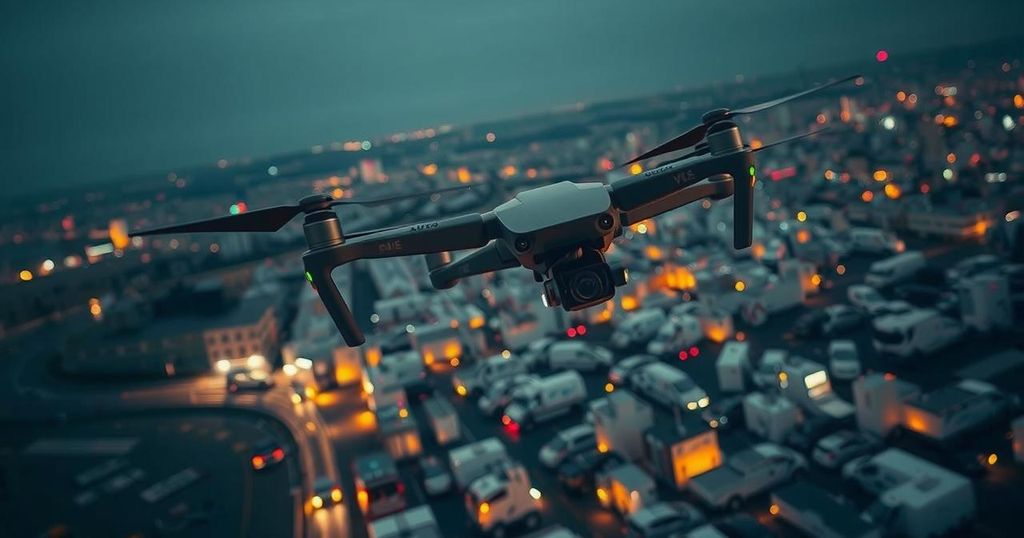An Iran-backed Iraqi militia conducted a drone attack on Haifa, Israel, claiming it was retaliation for Israeli military actions in Gaza and Lebanon. The Israel Defense Forces intercepted one of the drones. This event highlights the precarious security situation in the Middle East, where ongoing conflicts between Israel and Iranian proxies could lead to a wider regional war. The U.S. has deployed military assets to deter further aggression from Iran and its allies.
An Iraqi militia affiliated with Iran has conducted a drone assault targeting Haifa, a port city in northern Israel, early on a Tuesday morning. The Islamic Resistance in Iraq has proclaimed that this attack involved multiple drones as retaliation for recent Israeli military operations in Gaza and Lebanon. The Israel Defense Forces (IDF) reported that they successfully intercepted one drone that had entered Israeli airspace from the Syrian direction during the night. This drone strike occurs amidst escalating tensions throughout the Middle East, as the region faces the potential threat of a broader conflict stemming from ongoing hostilities involving Israeli forces and Iranian-supported groups, including Hamas and Hezbollah. Just prior to the drone incident, Iranian Supreme Leader Ayatollah Ali Khamenei had issued stern warnings to both Israel and the United States, promising a “crushing response” following Israeli airstrikes that resulted in casualties in Iran. Additionally, the United States has reinforced its military presence in the region with the deployment of B-52 bombers in an effort to deter any aggression from Iranian forces or their affiliates. Nevertheless, Israel continues to increase its military actions against Hezbollah in Lebanon and maintains its offensive operations against Hamas in northern Gaza, despite mounting calls from the international community for a cease-fire. Recent airstrikes by Israeli forces have reportedly resulted in significant casualties, with at least 30 fatalities reported in Gaza from attacks on Monday night.
The ongoing conflicts in the Middle East are characterized by heightened tensions between Israel and Iranian proxies like Hamas and Hezbollah. Encounters between military factions have intensified, particularly in light of ongoing Israeli military operations that are perceived as aggressive by Iran and its affiliates. The Iranian leadership’s declarations about a potential response underscore the fragility of the current geopolitical climate, where actions by one side frequently provoke escalatory reactions from the other. The presence of U.S. military assets further complicates the regional dynamics, as they are intended to act as a deterrent against Iranian actions, while also affecting local perceptions about military engagement.
In conclusion, the recent drone attack by an Iran-backed Iraqi militia on Haifa illustrates the increasing volatility in the Middle East, exacerbated by ongoing Israeli military actions in Gaza and Lebanon. Iranian threats of retaliation add another layer of complexity to the situation, emphasizing the risk of broader regional conflict. The response of the U.S. military aims to stabilize the scenario but may also provoke further hostilities. The international community continues to call for restraint, yet skirmishes persist, illustrating the challenges of de-escalation in this entrenched conflict.
Original Source: www.foxnews.com






